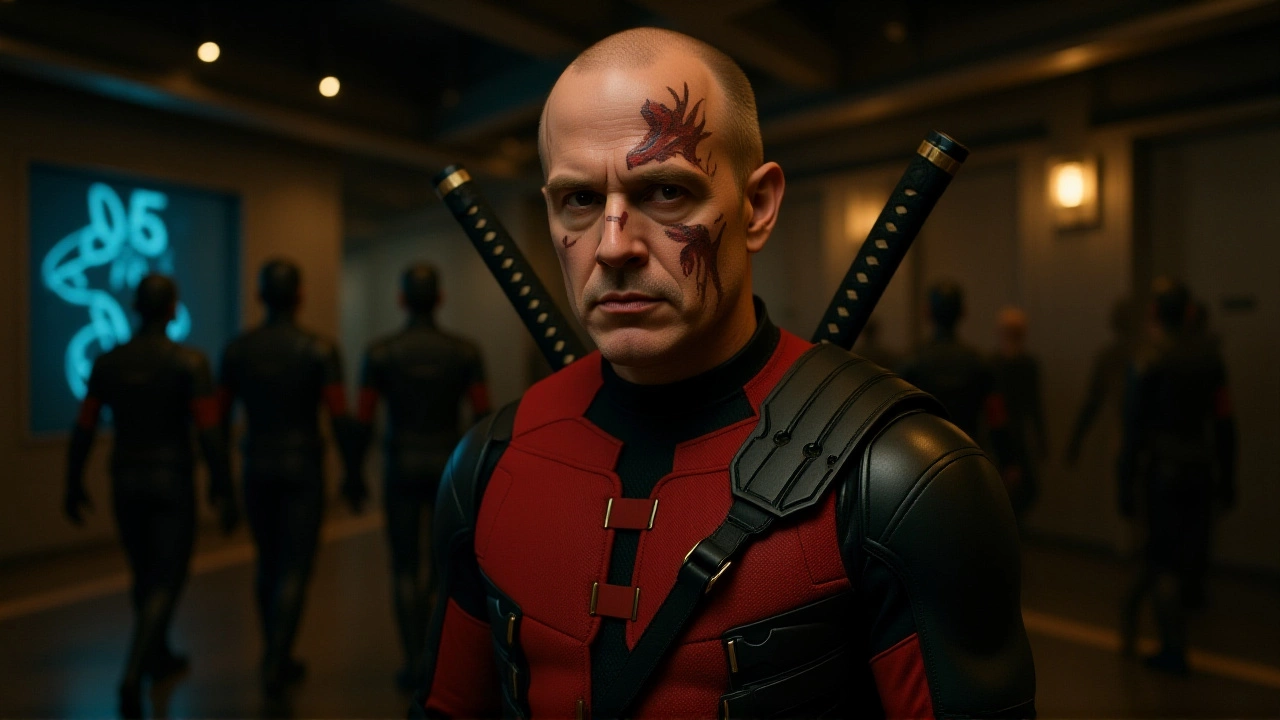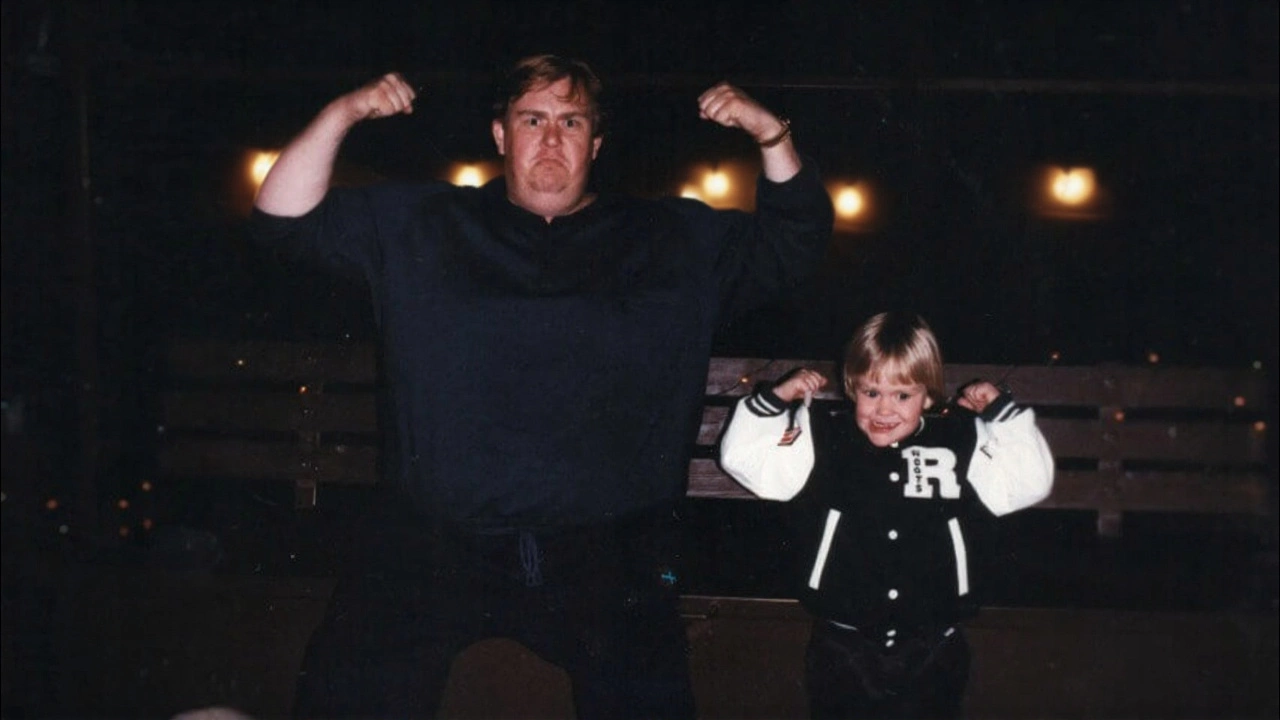When the lights dimmed at Roy Thomson Hall on September 4, 2025, the opening night of the Toronto International Film Festival didn’t just kick off a season of cinema—it brought a beloved Canadian icon back to life. John Candy: I Like Me, the deeply personal documentary directed by Colin Hanks and produced by Ryan Reynolds, unfolded with a quiet power that left the audience silent, then weeping. Canadian Prime Minister Mark Carney was in the front row, offering a heartfelt tribute to the man who made generations laugh. This wasn’t just a film premiere. It was a homecoming.
The Man Behind the Laughter
John Franklin Candy (October 31, 1950–March 4, 1994) wasn’t just a comedian. He was the guy who made you feel like you’d known him since childhood. Whether he was playing the lovable, overgrown kid in Planes, Trains and Automobiles, the bumbling but big-hearted dad in Home Alone, or the awkward but endearing alien in Spaceballs, Candy brought a warmth that felt real. And that’s exactly what this documentary sets out to capture—not the roles, but the man.
For the first time, viewers get access to private home videos, audio diaries, and outtakes never meant for public eyes. One clip shows Candy, mid-shoot on Uncle Buck, laughing so hard he drops his coffee cup. Another, shot in his kitchen in Toronto, has him telling his kids, "Guess my secret to acting, would be I pretend real hard." There’s no filter. No polish. Just John.
Family, Friends, and the Unspoken Grief
The heart of the film lies with Jennifer Candy-Sullivan and Christopher Candy, John’s children, who didn’t just appear in interviews—they helped shape the narrative. "It helps also with age for Chris and I to grow up and... understand life more," Jennifer told reporters at The Hollywood Reporter’s TIFF lounge on September 6, 2025. "We’re finally the same age our dad was when he died. And now we get to tell his story—not as children, but as people who lived through it."
What’s striking is how little negativity emerges. MovieWeb’s October 2025 review notes the documentary features "a laundry list of huge celebrities speaking of Candy’s character, struggling to find one [negative comment]." From Steve Martin to Dan Aykroyd, from Norman Jewison to Chris Farley, the chorus is unanimous: he was kind. He was generous. He showed up. Even Conan O’Brien, whom director Hanks says he "tickled by" during a podcast conversation before filming, recalls Candy calling him just to say he liked his monologue.
One unnamed voice in the trailer says it best: "I can’t tell you what was right about John Candy, or what was wrong, but he was my friend. And... I don’t wanna cry. But when I see him, when you see his face, I mean... Who are you?"
A Documentary Built on Trust
The choice of Colin Hanks as director wasn’t random. His work on Tower Records proved he could handle nostalgia without sentimentality. But the real turning point? The connection between the Candy family and Ryan Reynolds. "There was this kind of crossroads between our family and Ryan," Jennifer explained. Reynolds, who grew up idolizing Candy, didn’t just fund the project—he became a guardian of his legacy. His Maximum Effort production company ensured the film stayed true to John’s spirit, not Hollywood’s version of it.
The film’s emotional anchor is Cynthia Erivo’s haunting cover of "Everytime You Go Away," released as a single on October 3, 2025. It plays over the final minutes, a perfect echo of the film’s closing line: "Well, you think what you want about me. I’m not changing. I like—I like me."

Legacy in the Age of Streaming
Acquired by Amazon Prime Video in February 2023, the documentary will stream globally on October 10, 2025. That’s no accident. It’s exactly 31 years after Candy’s death, and just days before what would have been his 75th birthday. The timing feels intentional—like the world is being given one last chance to see him, not as a cautionary tale, but as a gift.
It won the Audience Choice Award for Documentary at the 2025 Cinéfest Sudbury International Film Festival, a quiet triumph that speaks louder than any Oscar. Because this isn’t about awards. It’s about memory. About a man who made people feel seen.
Why This Matters Now
In an era of viral outrage and performative personas, John Candy: I Like Me feels revolutionary. Here’s a star who didn’t chase trends, didn’t cancel anyone, didn’t need to be loud to be loved. He just showed up—on set, at home, in the middle of a crisis—and made people laugh. And maybe, just maybe, that’s the most radical thing we can ask for today.
Frequently Asked Questions
How did John Candy’s children contribute to the documentary?
Jennifer Candy-Sullivan and Christopher Candy weren’t just interview subjects—they were co-producers of sorts, helping shape the narrative, selecting archival material, and guiding the tone. Their emotional honesty, especially around their father’s death and their own growth into adulthood, forms the documentary’s emotional core.
Why was Colin Hanks chosen as director?
Hanks was selected partly because of his prior documentary work on Tower Records, which demonstrated his ability to blend nostalgia with authenticity. More importantly, his calm, empathetic approach reassured Candy’s family that their story wouldn’t be sensationalized. He wasn’t chasing drama—he was chasing truth.
What makes this documentary different from other celebrity biopics?
Unlike most celebrity docs, this one avoids tragedy porn. There’s no focus on Candy’s weight, addiction, or death as spectacle. Instead, it centers his joy, his kindness, and his quiet resilience. Even the music—Cynthia Erivo’s cover of "Everytime You Go Away"—is chosen for its tenderness, not its drama.
Why did Amazon Prime Video acquire the film so early?
Amazon secured rights in February 2023 because they recognized the cultural moment: a generation raised on Candy’s films is now parenting their own kids, and they want to share him. The October 10, 2025 release date—just before his 75th birthday—was strategically chosen to maximize emotional resonance.
What role did Ryan Reynolds play beyond producing?
Reynolds wasn’t just a financier—he was a devoted fan who grew up watching Candy. He personally reached out to the family, insisted on creative control staying with them, and even helped secure rare footage by leveraging his industry relationships. His involvement was deeply personal, not just professional.
Is there any negative commentary in the film?
Not a single one. Even those who knew Candy struggled to recall a single unkind moment. The film’s most powerful insight isn’t about his talent—it’s about his character. In an industry known for egos, John Candy was, by nearly every account, the rare person who made everyone around him feel better.



